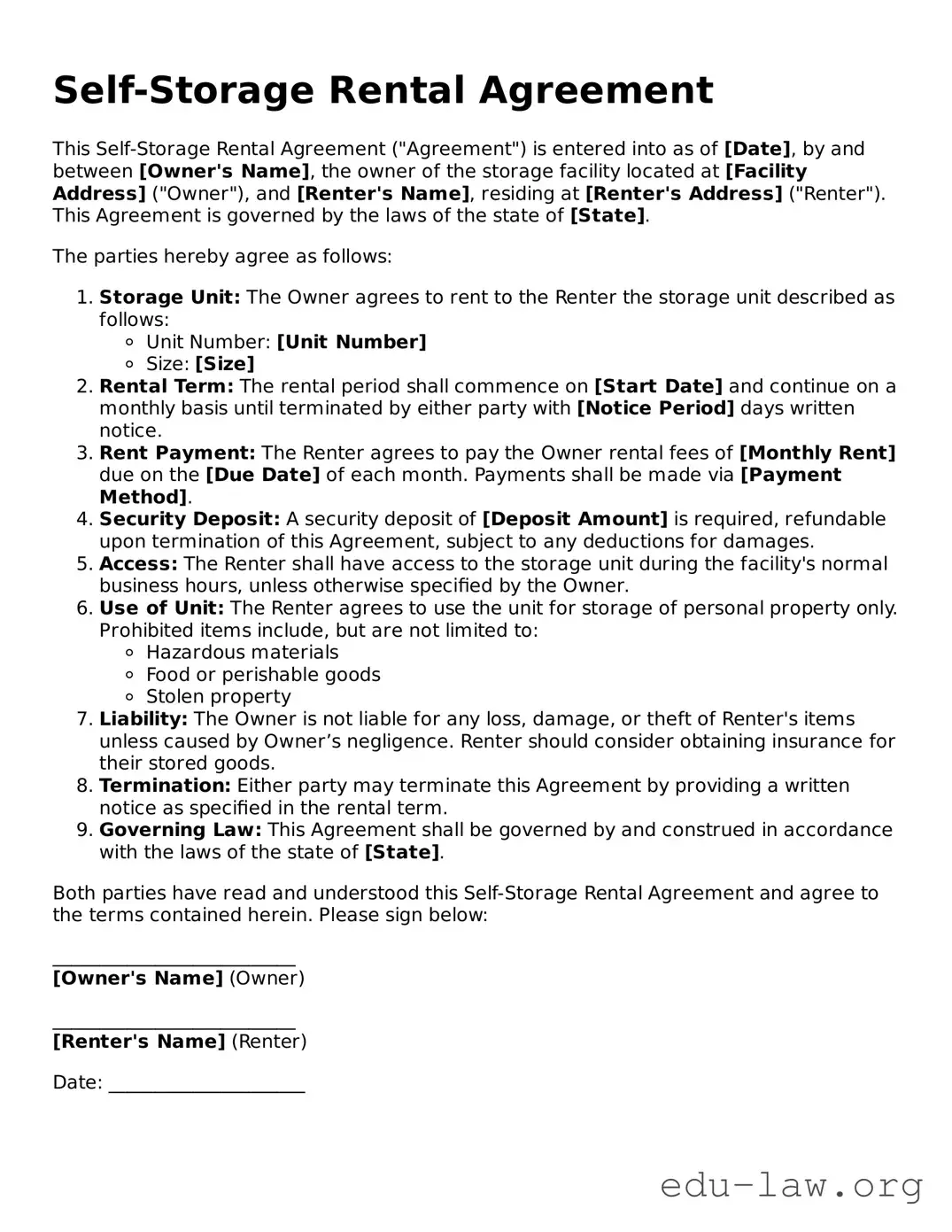What is a Self-Storage Rental Agreement?
A Self-Storage Rental Agreement is a legal document that outlines the terms and conditions under which a customer rents a storage unit. This agreement includes details about the rental period, payment terms, and responsibilities of both the landlord and the tenant. It's important to read and understand this agreement fully before signing.
What information is typically included in the agreement?
The agreement usually contains the names of the parties involved, the address of the storage facility, the size and location of the unit, payment details, and any restrictions on what can be stored. It also explains the rights and obligations of both parties, including what will happen if payments are late or if damage occurs to the unit.
How long is the rental period?
The rental period can vary, but it's commonly set for one month. Some facilities may offer longer leases or automatic renewals unless you provide notice to terminate the agreement. Always check the initial rental period specified in your agreement.
Can I access my storage unit at any time?
Access to your unit often depends on the storage facility’s policies. Most facilities allow access during regular business hours, while some offer 24/7 access. Check your agreement for specific access times and any required identification to enter the facility.
What should I do if I need to terminate the agreement early?
If you need to terminate the agreement early, review the document for any required notice period. Many agreements allow for early termination, but they may also include fees. Communicate your intention to vacate with the facility as soon as possible to avoid additional charges.
Are there any restrictions on what I can store?
Yes, most storage facilities have restrictions on certain items. Commonly prohibited items include hazardous materials, perishable goods, and live animals. Always refer to your rental agreement for a specific list of prohibited items. Storing restricted items can lead to fines or the termination of your agreement.
What happens if I miss a payment?
If you miss a payment, the storage facility may charge late fees and could restrict your access to the unit. Continuing to miss payments can result in further actions, which might include auctioning off your items after a specific period. It’s essential to understand the payment schedule and address any issues proactively.
